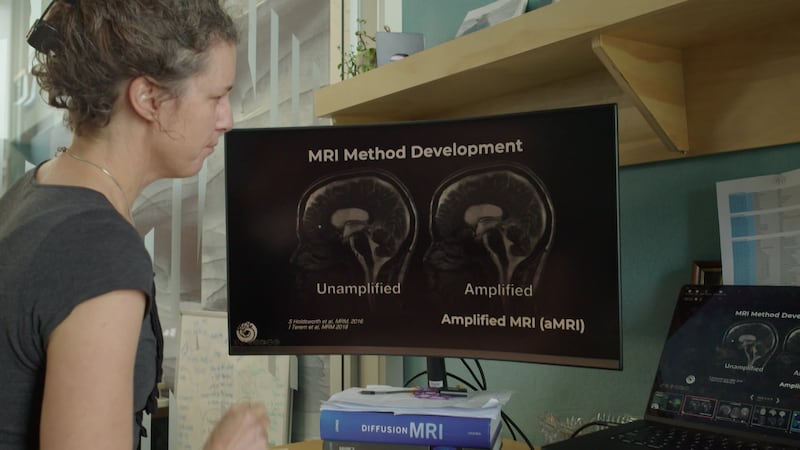The Mātai Medical Research Institute is at the forefront of breakthrough efforts to deepen the understanding and treatment of neurological diseases, thanks to a pioneering new MRI technique.
Based in Gisborne, Mātai is the home of amplified MRI (aMRI), a cutting-edge imaging method that enables enhanced visualisation of the brain and its subtle movements.
Mātai researcher and chief executive Samantha Holdsworth says the new aMRI technology has the potential to detect signs of neurological disease earlier than traditional methods.

“Normally, in MRI, we try and correct motion, we try and fix it, we don’t want motion. But, here we thought, look if we try and amplify that motion we can maybe look at the brain in a different way and it can give us some information about brain health that’s not available with regular static MRI.”
Addressing dementia in Māori communities
Research has shown dementia tends to present up to 10 years earlier in Māori than in non-Māori. Although Māori account for 6.2 percent of all New Zealanders with dementia, researchers argue this figure is underreported.
Studies from the Lancet Commission have identified factors such as diabetes and smoking as potential contributors to dementia among Māori.

Holdsworth says the aMRI will offer significant benefits to Māori communities across Aotearoa, with the potential to improve early detection of brain injuries, support age-related brain monitoring, and enhance the study of neurodegenerative conditions like Alzheimer’s disease.
“There’s some really early data that shows that the brain can move a little bit differently in dementia, mate wareware.”
A milestone in brain research
Founded in 2020, Mātai is committed to advancing global medical research and innovation through its focus on neuroimaging and non-invasive technologies.
The aMRI technique is being hailed as a breakthrough in brain visualisation, offering a novel, non-invasive way to observe and understand the brain’s movements.
The technology was recently presented at a forum of internationally recognised researchers in England and featured in Interface Focus, the Royal Society’s leading interdisciplinary journal.
Mātai is also investing in the future of medical research by supporting local youth. The institute offers scholarships for Tairāwhiti school leavers and internships for university students, helping to create pathways for rangatahi into STEM careers.
Holdsworth emphasises the importance of Māori involvement in research.
“It’s not just about the method itself because it does have application across diseases and disorders that affect Māori. But, it’s also about bringing Māori around on the journey through the internship programme, through masters and hopefully soon PhD students.”


